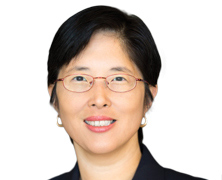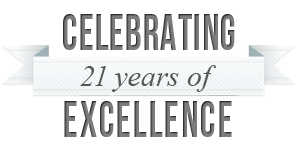As the only daughter of two first-generation immigrants to the U.S., I did not at first contemplate a career in law, particularly a career based on intangible rights like intellectual property. Engineering and medicine were the “safe” careers. However, after completing medical school at a relatively early age, twenty-one, I took time off to reconsider my career choice.
I found a patent agent position at Marshall, Gerstein & Borun by accident, having initially applied for a secretarial position. That serendipitous opportunity changed my life. Mike Borun was a pioneer in biotech patent law, and the firm was doing sophisticated legal work for important and commercially successful products. I loved the challenge of the work, went on to attend law school at Harvard, and clerked for the appellate court that hears patent appeals.
I am fortunate that Marshall, Gerstein & Borun has always maintained a culture where women can thrive. In the traditionally male-dominated field of intellectual property law, the firm was unusual at the time because more than 10 percent of its equity partners were women. In 1999, I became an equity partner while I was on maternity leave with my second child.
In 2001, I took a leave of absence from the firm for two years to be SVP and General Counsel of Hyseq Pharmaceuticals, a publicly held biotechnology startup. That decision had a great impact on my career. My exposure to the responsibilities of running a company as part of the executive team gave me a unique insider’s perspective and vastly improved my ability to provide holistic legal advice to clients.
Teamwork and listening are important to me. I listen carefully to clients so I can help solve their problems and use intellectual property to achieve their business goals. I have been fortunate enough to work closely with in-house attorneys and executives on patents relating to eight different approved drugs. My partner Sharon Sintich and I were part of the team that prosecuted patents relating to ENBREL.
I enjoy mentoring junior associates and watching them form longlasting, trusting relationships with clients that reflect my own relationships. If I can deduce any lessons from my career, I would counsel other women to be open to unexpected opportunities, unafraid to try new things, and look for the right environment that will let them thrive.
What advice would you give young women building/preparing for a career?
Women have made great gains, but we still have a long way to go. I don’t think women are less ambitious or capable. Women may just need a little more encouragement to achieve leadership positions and let their voices be heard. We can all help by encouraging each other and providing connections and networks.
I would advise younger women to seek help from men as well as women, and from peers as well as senior colleagues. I would also advise taking maximum advantage of flex hours and technology for working remotely. These options let women—and men—conveniently take care of family responsibilities while maintaining high-quality work. My clients don’t care whether I am at home, at work, or traveling, as long as I am available.







